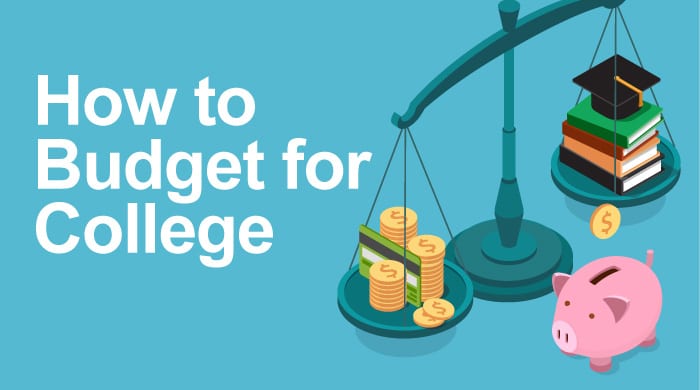Table of Content
Mortgage rates are at all-time lows, so consolidating your debt may save you a significant amount of money. Whether your credit card debt is due to the pandemic or you accumulated it beforehand, there are ways to get out and one way is consolidating it into your home loan. However, with his loan term extended back to 25 years , he will pay significantly more in interest over the life of the loan, unless he makes additional repayments when he’s in a better position. Now that you’ve read our breakdown, you’re in a great position to start looking atyour options. If you happen to take the cash-out-refinance route, you’re intentionally increasing your mortgage balance by the amount of debt you’re aiming to pay off. This means that if you failed to make your payments, your lender can take your home.

He says at this stage in our economic cycle, residential property is increasing in value at an average growth rate of around nine percent. He says this means that if the buyer acts with too much caution, he is likely to find himself buying in the future at far higher prices. Rawson says like most other property investors, he foresees interest rates rising but relatively slowly as the global economy enters its recovery phase. He says the signs that this recovery will gain pace are increasingly encouraging.
What Is Debt Consolidation
You’ll have less of a balance on your cards, but more on your home loan. The equity you took out as cash will be added back into your home loan’s balance. When you do a cash-out refinance, you take out a new home loan to replace your old one and you receive a portion of your home equity as cash after the new loan closes. If your goal is paying off credit card debt, you can put that cash directly toward your card balances.

The costs are $89,904 without consolidation, $92,311 with consolidation into the first mortgage, and $89,523 with consolidation into the second mortgage. Consolidation with the 10% second mortgage, on the other hand, turns out to be slightly profitable. House purchasers consolidating non-mortgage debt in a mortgage must make down payments large enough that their loan meets the maximum ratio of loan to property value after the consolidation. Although including debt in your new home loan can have benefits, the debt itself can be an obstacle to approval. If your repayment history is uneven, the lender will hesitate to approve your application. More importantly, the more debt you include, the more money you will need to put down.
Books for a Better Life
Generally, you pay interest on the money you use, not on your total credit limit. Interest rates fluctuate depending on market conditions, so your payments could go up. As long as you pay the minimum payments, you can make multiple payments without penalty. Fees apply, such as appraisals, title search, title insurance and legal fees. Based on the example above, refinancing your home loan to consolidate your debts can save you money in the short term . A cash-out refinance lets you take out a new mortgage that’s greater than your current balance.
The equity of your home is yours and it is logical to want to use that to help you get out of high-interest rate debts. However, this is also an asset that you can use on something else – like your retirement. Do not use it recklessly for consolidation especially if you know that you have not yet changed the bad financial habits that got you into debt in the first place. So stick to the plan and keep the loan as low as possible.
Which lenders offer 95% LVR home loans?
You may find that a consolidation loan is wrong, but it’d be best to find other ways to eliminate your debt burden. Banks, credit unions, and online lenders all offer personal loans that can be used for debt consolidation or loans that are specifically designated for debt consolidation loans. One of the biggest benefits of consolidating debts into your mortgage is taking advantage of mortgage rates. Typical credit cards today carry interest rates from 10% to 20% or more, with “penalty rates” being even higher for late-payers or those with poor credit. In comparison, typical home loan rates are closer to the 4% to 6% range.
Unfortunately, the common one that says "consolidation is profitable if the rate on the first mortgage is below the rate on non-mortgage debt", is wrong most of the time. Because you need to consider these factors, and more, it is important to sit down and talk to a mortgage lender before you make your next move. A loan officer will ask you questions about your short- and long-term financial goals and your present situation and then, provide you with options so you can make informed decisions. Generally speaking, having a debt consolidation loan will not have a negative impact on your ability to refinance your home or obtain a new mortgage. In fact, it may actually improve your ability to qualify.
And while the banks have offered most home-owners payment holidays on their bonds, owners who have built up equity in their homes have also been looking at the consolidation option,” he notes. Consolidating debt into your home loan is the process of combining multiple smaller debts, such as credit card or personal loans, with a lower-interest rate mortgage. At SA Home Loans, we pride ourselves on being a responsible lender, and we don’t want our clients to struggle with debt repayment.
Although finding a home you love that also meets your lender's LTV requirements presents a challenge, it is well worth it in the end. As a general rule, mortgage loans carry much lower interest rates that other types of debt, such as personal loans and credit card debts. By using your new mortgage to consolidate these high interest debts, you lower the amount of interest you pay each month and save money over time. In addition, mortgage interest is tax deductible whereas most other interest charges are not. You can use debt management where a credit counselor can help you pay off your debts.
Your credit score affects your ability to get a job, get an apartment or loan, and even how much you pay for insurance rates. When dealing with debt, it can be easy to fall behind on payments—making your credit score drop. But your credit score will improve when you consolidate your loans and start making timely payments again. You might not have thought about this, but the interest rate on your debt consolidation loan is probably better than what you’re paying on your other debts. That’s because lenders are more likely to give you a lower interest rate when they know they’ll take all your loans off their books. If you want to use balance transfer to consolidate your debts, you need to have a strategy in mind.
They can be a good option for managing your debt if you face multiple loans with high-interest rates and variable payments. However, they are only available for some, and you may end up paying more than what you originally owed if your current situation doesn’t meet specific requirements. Whether you’re choosing to consolidate your loans or not, it’s essential to understand the benefits and drawbacks of each option.
Remember that if you fail to pay this off, you could end up losing your house. Should your situation deteriorate and you struggle to make any kind of debt payments, you may find yourself considering bankruptcy. Bankruptcy is a perfectly acceptable option, but your options may be somewhat limited if your debts have been consolidated into a home equity loan or mortgage.
Interest rates on a debt consolidation mortgage might be different from your existing mortgage. If you change your mortgage, the terms of your original agreement will likely change. You’ll likely save money on interest – Consumer debt interest rates are high, some as high as 35.99%.
List the creditor, the amount owed, the monthly payment and indicate that you want it included in the loan. High-interest debt from credit cards or loans makes it hard to manage your finances. But if you're a homeowner, you can take advantage of your home's equity. Combine the money you owe into a debt consolidation mortgage (also known as a conventional mortgageOpens a popup. Although they carry a clear benefit for borrowers, consolidation mortgages pose a higher risk for the lender and aren’t easy to come by. One of the most significant drawbacks of debt consolidation loans is that you still have to make regular payments.








